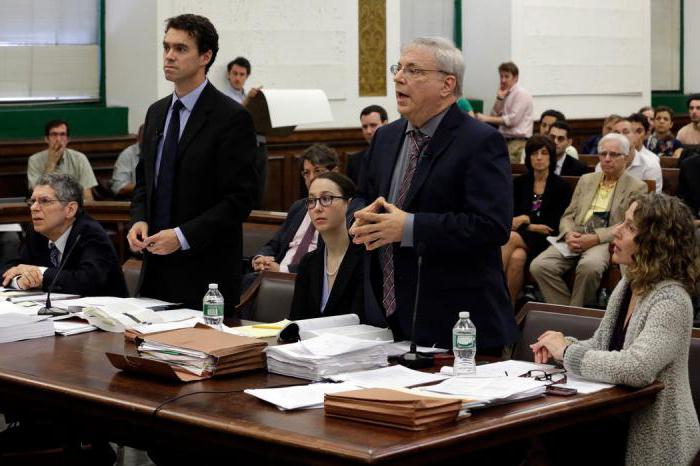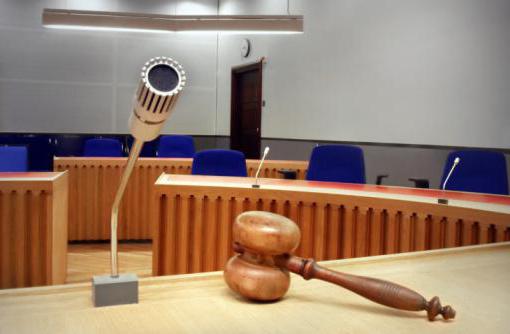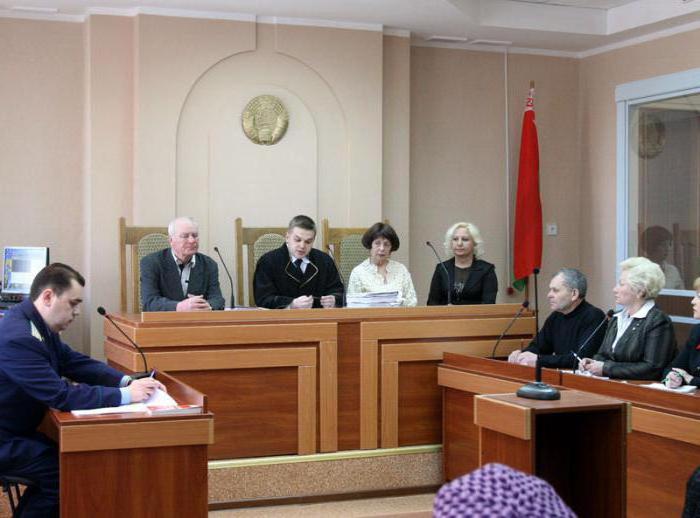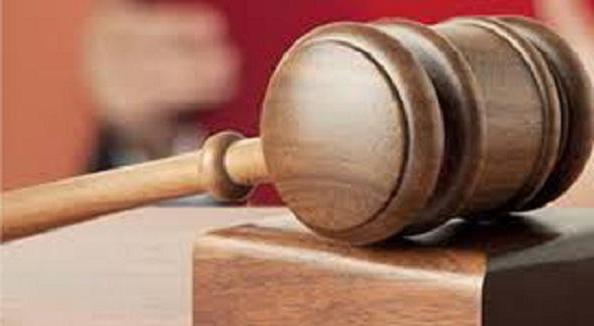Art. 90 of the Code of Criminal Procedure clarifies the role played by a previous court decision, which entered into force, in the course of proceedings in a criminal case.
Definition of prejudice
The definition of "prejudice" is given only in Art. 90 Code of Criminal Procedure with comments. The text of the law itself does not say anything about the term used.

From textbooks or scientific articles, one can find out that it is the duty of the court, investigative body or prosecutor to accept without verification the facts reflected in earlier court decisions. In the previous version of the law, it was allowed to verify the facts established by the courts if the investigator or judge doubts about their reliability.
Now such a check is excluded. The truth of previously identified circumstances is not verified.
How exactly to apply this rule, the Constitutional Court explained. He pointed out that only those facts that were part of the subject of proof are binding. It depends on their determination or refutation which decision on the claim will be made by the judge.
Facts that are not related to the subject of evidence, which are not relevant for the case, indicated in the judicial act, are not automatically recognized as true for participants in the criminal process.
The meaning of the law
The task of prejudice is to simplify and expedite the consideration of cases in which the same persons participate. Another is to ensure the unity of the judiciary. One of the participants in the process can initiate a new trial, with the help of its results one can get rid of the recognition of some inconvenient facts. We must not forget that the clarification of new facts in the framework of other trials gives the right to ask for a review of a previous decision.

The criminal process is no exception in this regard. But the application of prejudice in it has its own characteristics.
Features of the criminal process
Art. 90 of the Criminal Procedure Code applies prejudice to judges, prosecutors, and investigators with interrogators. Prejudice extends to all stages of the criminal process.
Another point - the CPC does not say that the parties to the decision should be the victim and suspect or accused. Thus, the CPC provides a broader interpretation of prejudice.

The law requires only an established fact or circumstance to be taken into account, while the assessment should be completely ignored. In other words, in criminal proceedings, the court independently decides whether the defendant actually committed the act and whether his guilt, which is the basis for the conviction, takes place.
What judicial acts are we talking about
Art. 90 of the CPC provides an exhaustive list of acts:
- sentence in another criminal case;
- decision on the arbitration case;
- administrative decision;
- decision in a civil case.
Are there any exceptions?
A sentence in another case does not apply if it is passed in a simplified form. A plea agreement is concluded with one defendant or with all of them. The facts from the verdict rendered on the basis of the agreement are not used in other processes: neither the prosecutor, nor the court can refer to them in another case. This is the case with several defendants, one of whom agreed to plead guilty. Art. 90 of the Code of Criminal Procedure establishes strict restrictive frameworks in this regard.
If in the case one accused agrees to a special procedure, his case is set aside in a separate proceeding. The verdict states that he committed an act together with other persons. With whom it is not said.
The application of other judicial acts
Decisions are understood as acts of the courts that allowed claims on the merits of the claim - it is either satisfied or denied.If the proceedings are completed without permission on the merits (waiver of the claim, dismissal, etc.), a determination is made and it is not taken into account in criminal proceedings.

However, the court is not forbidden to accept it as one of the evidence. Another thing is how informative they are and whether they contain useful information.
Art. 90 of the Code of Criminal Procedure excluded decisions made by the courts in the manner provided for by the Administrative Code. Both the judicial act and the investigation materials are used as written evidence. Information from them is evaluated, as well as information from other sources are subject to verification.
Denial of prejudice
There is only one way around an obligation to admit a fact. The decision must be quashed or amended by a higher authority. Comments on Art. 90 of the Code of Criminal Procedure contain just such an explanation. Cancellation or amendment is carried out as part of a civil, arbitration or administrative process, and nothing else.
A specific way to reverse a decision is to achieve its cancellation in connection with the fabrication of evidence received by the court from one of the parties.
In criminal proceedings, a court or investigator may suspend proceedings until an appropriate litigation is resolved.
For example, until the appeal is filed on time or the courts of the second and subsequent instances agree with earlier decisions.
The acts of the second and all higher authorities shall enter into force automatically on the day of their adoption; their acquisition of legal force is not connected with the expiration of the appeal period.
The most prudent solution for the prosecution is to wait until the end of the process or the deadlines for appeal.

If the judge justifies his sentence on facts that will later be disproved, the parties are entitled to ask the court to review the case due to newly discovered circumstances.
Practical problems
The judge may nevertheless disagree with the facts, provided that other circumstances that were not considered in the previously considered case are revealed.
To date, criminal lawyers art. 90 Code of Criminal Procedure considered inoperative. The investigating authorities, in their opinion, often ignore her.
For example, on the basis of a decision recognizing the fact of harm due to an accident caused by the defendant, a case is brought against him. This violates the prohibition, in particular, of being guided by the assessment of the judge who resolved the civil or arbitration claim for the fault of the defendant.
There are cases when the court agrees with the lawfulness of acquiring property rights, and the investigator opens a criminal case, believing that nevertheless there has been a fraud or other criminal actions.
Thus, the question of the correct application of this rule is still open, as shown by countless comments of Art. 90 Code of Criminal Procedure.